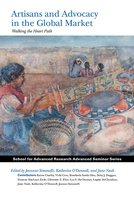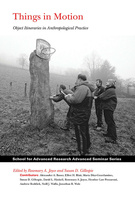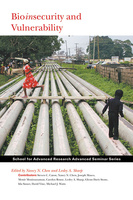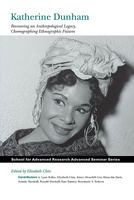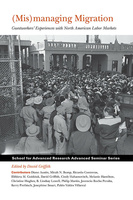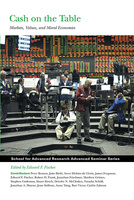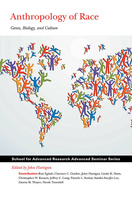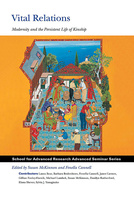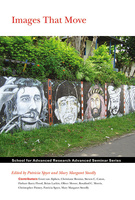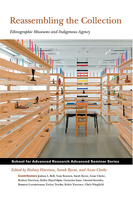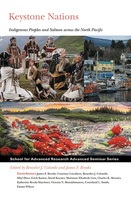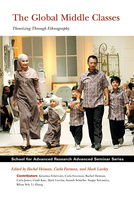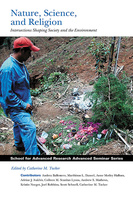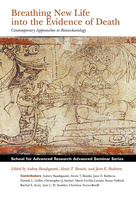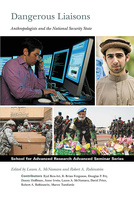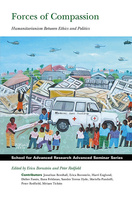Artisans and Advocacy in the Global Market
Walking the Heart Path
Contributors to this book explore how crafts -- pottery, weaving, basketmaking, storytelling -- in Middle America and beyond are a means of making an intangible cultural heritage visible, material, and enduring. Each contribution shows how social science research can evolve into advocacy, collaboration, and friendship.
Things in Motion
Object Itineraries in Anthropological Practice
Complementing the concept of object biography, the contributors to this volume use the complex construct of "itineraries" to trace the places in which objects come to rest or are active, the routes through which things circulate, and the means by which they are moved.
Bioinsecurity and Vulnerability
"Biosecurity" has ballooned into an increasingly mundane aspect of human experience, serving as a catchall for the detection, surveillance, containment, and deflection of everything from epidemics and natural disasters to resource scarcities and political insurgencies.
Katherine Dunham
Recovering an Anthropological Legacy, Choreographing Ethnographic Futures
This book explores Katherine Dunham's contribution to anthropology and the ongoing relevance of her ideas and methodologies, rejecting the idea that art and academics need to be cleanly separated from each other.
(Mis)managing Migration
Guestworkers' Experiences with North American Labor Markets
Today managed migration is growing in North America. This mirrors the general growth of migration from poorer to richer countries, with more than 200 million people now living outside their natal countries. Faced with this phenomenon, managed migration enables nation-states to regulate those population movements; direct foreign nationals to specific, identified economic sectors that citizens are less likely to care about; match employers who claim labor shortages with highly motivated workers; and offer people from poorer countries higher earning potential abroad through temporary absence from their families and homelands.
Cash on the Table
Markets, Values, and Moral Economies
A great deal is at stake in understanding the moral dimensions of economic behavior and markets. Public debates over executive compensation, the fair trade movement, and recent academic inquiries into the limitations of rational-choice paradigms all point to the relevance of moral values in our economic decision-making processes. Moral values inform economic behavior.
Street Economies in the Urban Global South
This book focuses on the economic, political, social, and cultural dynamics of street economies across the urban Global South. Although contestations over public space have a long history, Street Economies in the Urban Global South presents the argument that the recent conjuncture of neoliberal economic policies and unprecedented urban growth in the Global South has changed the equation.
Anthropology of Race
Genes, Biology, and Culture
What do we know about race today? After years of debate and inquiry by anthropologists, the question remains fraught with emotion and the answer remains complicated and uncertain. Anthropology of Race confronts the challenge of formulating an effective rejoinder to new arguments and new data about race, and attempts to address the intense desire to understand race and why it matters.
Vital Relations
Modernity and the Persistent Life of Kinship
For more than 150 years, theories of social evolution, development, and modernity have been unanimous in their assumption that kinship organizes simpler, "traditional," pre-state societies but not complex, "modern," state societies. And these theories have been unanimous in their presupposition that within modern state-based societies kinship has been relegated to the domestic domain, has lost its economic and political functions, has retained no organizing force in modern political and economic structures and processes, and has become secularized and rationalized. Vital Relations challenges these notions.
Images That Move
Images play a significant part in projects of "poetic world-making" and political transformation. They participate in the production of commensuration or of incommensurability, enact moments of prophecy or exposure, and attract or repel spectators' attention. But any examination of images in motion must also recognize the blockages and breakdowns that prevent their movement, as well as the enframings or "stickinesses" that trap them in particular places and prevent them from reaching others.
Reassembling the Collection
Ethnographic Museums and Indigenous Agency
Reassembling the Collection presents innovative approaches to the study of historical and contemporary engagements between museums and the various individuals and communities who were (and are) involved in their production and consumption.
Big Histories, Human Lives
Tackling Problems of Scale in Archaeology
The contributors consider something archaeologists seldom think about: the intersection of micro-scale human experience with large-scale and long-term histories.
Keystone Nations
Indigenous Peoples and Salmon across the North Pacific
The histories and futures of Indigenous peoples and salmon are inextricably bound across the vast ocean expanse and rugged coastlines of the North Pacific. Keystone Nations addresses this enmeshment and the marriage of the biological and social sciences that have led to the research discussed in this book.
The Global Middle Classes
Theorizing through Ethnography
Surging middle-class aspirations and anxieties throughout the world have recently compelled anthropologists to pay serious attention to middle classes and middle-class spaces, sentiments, lifestyles, labors, and civic engagements.
Nature, Science, and Religion
Intersections Shaping Society and the Environment
This book is about the complicated and provocative ways nature, science, and religion intersect in real settings where people attempt to live in harmony with the physical environment. The contributors explore how scientific knowledge and spiritual beliefs are engaged to shape natural resource management, environmental activism, and political processes.
The Shape of Script
How and Why Writing Systems Change
This book builds on earlier projects about the origins and extinctions of script traditions throughout the world in an effort to address the fundamental questions of how and why writing systems change. The contributors--who study ancient scripts from Arabic to Roman, from Bronze Age China to Middle Kingdom Egypt--utilize an approach that views writing less as a technology than as a mode of communication, one that is socially learned and culturally transmitted.
Breathing New Life into the Evidence of Death
Contemporary Approaches to Bioarchaeology
Taking cues from current theoretical perspectives and capitalizing on the strengths of new and sophisticated methods of analysis, Breathing New Life into the Evidence of Death showcases the vibrancy of bioarchaeological research and its potential for bringing "new life" to the field of mortuary archaeology and the study of human remains.
Dangerous Liaisons
Anthropologists and the National Security State
Dangerous Liaisons is a book about intersections. It is a product of two year's worth of discussion among a group of ethnographers from four different countries studying war, violence, the military, and the state.
Enduring Conquests
Rethinking the Archaeology of Resistance to Spanish Colonialism in the Americas
Enduring Conquests presents new interpretations of Native American experiences under Spanish colonialism and challenges the reader to reexamine long-standing assumptions about the Spanish conquests of the Americas.
Forces of Compassion
Humanitarianism between Ethics and Politics
Suffering and charity have a long history. Both human sorrows and attempted remedies were familiar features of life in earlier eras and religious traditions, however, during the final decades of the twentieth century, natural disasters and civilian casualties of war transformed into "humanitarian crises." In these recurring dramas presented by international media, an extensive network of interstate entities and nongovernmental organizations (NGOs) supplies assistance to victims.

